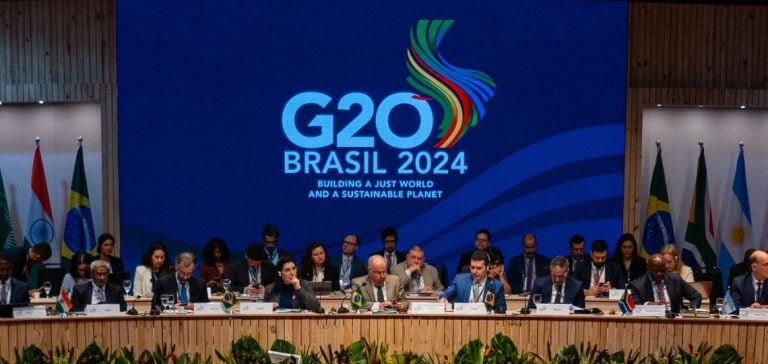At the G20 meeting in Manaus, Brazil, the ministers responsible for research and innovation approved the “Manaus Package”, a set of strategic recommendations including a detailed guide to energy innovation.
This document, drawn up by the International Energy Agency (IEA), proposes concrete policy options to help governments support energy technologies in emerging economies.
The main aim of the guide is to facilitate the establishment of policy frameworks to reduce the costs and improve the performance of clean energy technologies.
Faced with growing energy needs, G20 governments are seeking to accelerate the energy transition while maintaining strong industrial development.
The guide responds to these expectations by presenting a series of measures to stimulate technological innovation, both locally and internationally.
The emphasis is on the key role of public policy in encouraging private investment in clean energy technologies.
Government support is crucial to creating a favorable environment for the emergence of new technologies, and this guide offers concrete examples of success stories from various regions.
Targeted recommendations for emerging economies
The guide is aimed particularly at emerging and developing economies, which face specific challenges in their energy transition.
For these countries, technological solutions must not only address climate issues, but also economic and social imperatives.
The IEA document presents a series of policy options adapted to local contexts, ranging from the creation of technological innovation centers to the establishment of public-private partnerships to finance energy infrastructures.
One of the priorities highlighted is the need to foster the emergence of local technological ecosystems capable of developing innovative solutions.
By supporting research and development projects, governments can enable their industries to move up the global energy value chain.
This approach is particularly relevant in countries where a lack of infrastructure hinders the rapid adoption of clean technologies.
The guide also includes recommendations on the financial mechanisms needed to attract private investment in the energy sector.
These include the implementation of incentive tax policies, the creation of public-private funds and access to multilateral financing.
International exchanges and knowledge sharing
The IEA guide also focuses on international cooperation in energy innovation.
The G20, as a forum for global economic cooperation, is an ideal place to promote the exchange of best practices between developed and developing countries.
This cooperation makes it possible to disseminate technologies and share the successes achieved in different economic contexts.
The document encourages countries to strengthen their bilateral and multilateral partnerships to facilitate the transfer of technology and know-how.
The experience of developed countries in decarbonization can be a powerful lever for emerging economies, which are faced with growing energy needs.
By facilitating this exchange of knowledge, the G20 hopes to accelerate the global energy transition while promoting sustainable economic development.
Technologies and policies tailored to regional needs
In this guide, the IEA highlights a number of energy technologies adapted to the specific needs of emerging countries.
Solutions such as decentralized renewable energies and low-cost energy storage systems are highlighted.
These technologies have the potential to transform the power grids of developing economies, reducing their dependence on fossil fuels while increasing their energy efficiency.
Public policy plays a crucial role in facilitating the adoption of these technologies.
The guide recommends a series of incentives, such as subsidies for innovation, tax breaks for companies investing in clean technologies, and the creation of industrial zones dedicated to clean energy.
These initiatives aim to create a favorable environment for the emergence of new industries, while meeting the growing energy needs of developing countries.
The document also stresses the need to strengthen energy transmission and distribution infrastructures, to enable more efficient integration of renewable energies into existing networks.
In addition, the development of energy storage capacities is crucial to enable better management of fluctuations in renewable energy production.
By implementing these recommendations, governments can encourage the rapid adoption of new energy technologies, while supporting economic growth and meeting decarbonization targets.






















